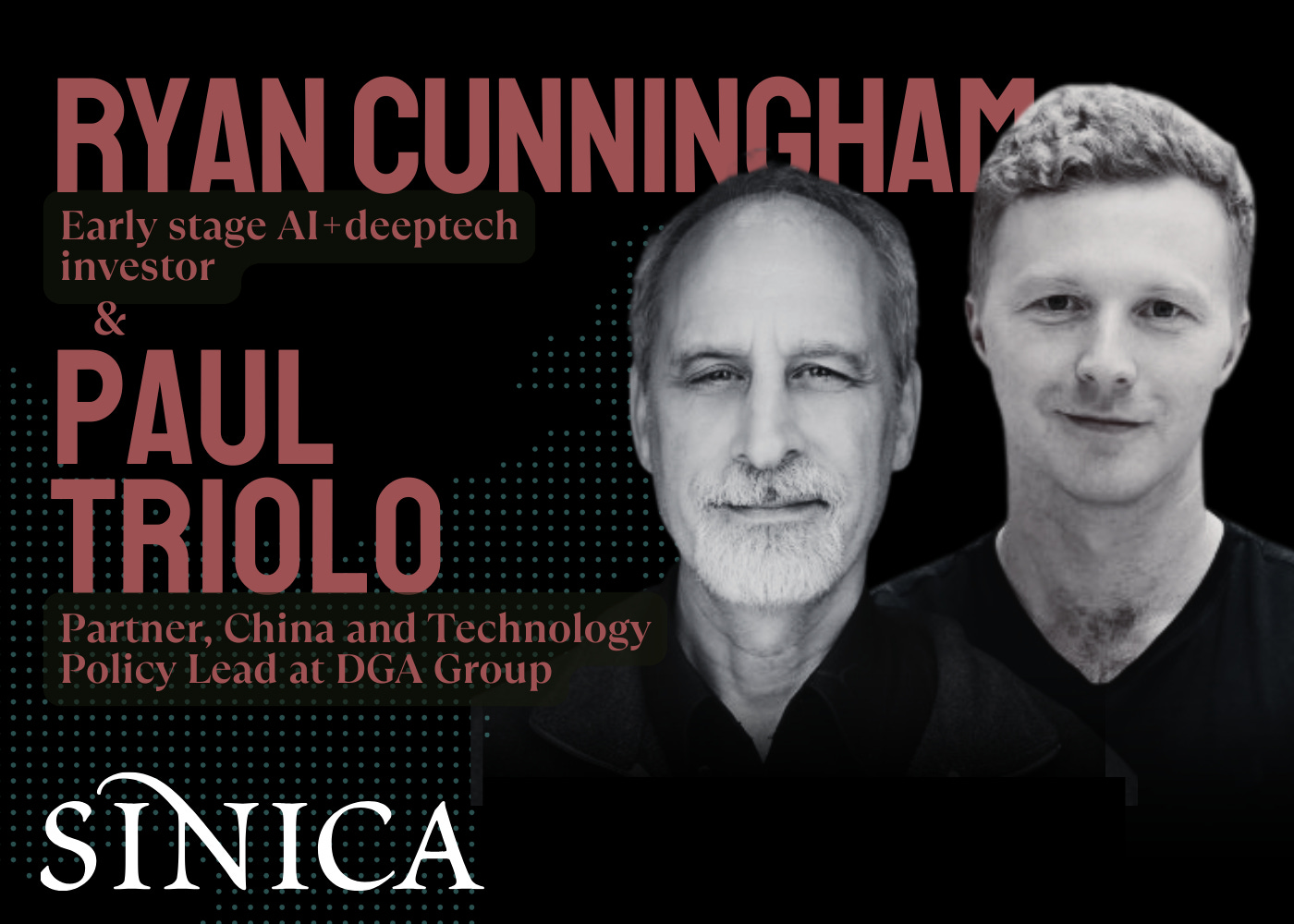Transcript | The World AI Conference in Shanghai: Two tech veterans share their impressions
Below is a complete transcript of the episode. Thanks to CadreScripts for their great work, to Oana Grigor and Natalia Polom for checking and formatting, and to Zhou Keya for the image! Listen in the embedded player above.
Kaiser Kuo: Welcome to the Sinica Podcast, a weekly discussion of current affairs in China. In this program, we'll look at books, ideas, new research, intellectual currents, and cultural trends that can help us better understand what's happening in China's politics, foreign relations, economics, and society. Join me each week for in-depth conversations that shed more light and bring less heat to how we think and talk about China.
I'm Kaiser Kuo, coming to you this week from Beijing. I'm going to be back and forth for the rest of this year – But if all goes well, I will be spending most of my time here in Beijing before the end of the year. Sinica is supported this year by the Center for East Asian Studies at the University of Wisconsin-Madison, a national resource center for the study of East Asia.
I'm going to keep the Sinica podcast free — I always will. But if you do work for an organization that you know thinks that what I'm doing is valuable and worthwhile, please consider finding a way to lend institutional support. You can get me at sinicapod@gmail.com. And listeners, I know I say this every week, but truly, I am in earnest, please support my work by becoming a paying subscriber at sinicapodcast.com. You will enjoy, in addition to the podcast, the complete transcript of the show, essays from me as well as writings and podcasts from some of your very favorite China-focused columnists and commentators. And of course, you will enjoy the frisson of knowing that you are helping me do what I honestly believe is important work. So, do check out the page, see what's on offer. Consider helping me out.
Today, I'm joined by two guests to unpack what happened this past weekend at the 2025 World Artificial Intelligence Conference, WAIC, held in Shanghai. It was a massive event with, I think it was, like over 1500 Chinese AI models that were showcased. Some $2.3 billion in deals were supposedly inked. There were just, you know, gazillions of robots, humanoid robots, dog robots. There was a bold keynote by Premier Li Qian, who proposed nothing less than a new multilateral body, World AI Cooperation Organization, while reaffirming China's intent to shape the global governance of AI. So, joining me again on Sinica is Paul Triolo, one of the sharpest and most seasoned observers of China's tech ecosystem and U.S.-China competition.
He is a partner and technology policy lead at DGA – Albright Stonebridge Group, and joins us from Shanghai, where he was on the ground at WAIC. Welcome back, Paul.
Paul Triolo: Great to be here, Kaiser.
Kaiser: Also, with me today, and I am thrilled to welcome him to Sinica for the first time, is Ryan Cunningham. Ryan is the founder of Edgerunner Ventures, which backs founders building at the edge of AI in the real economy. He's had a longstanding interest in China's tech scene. He's invested a lot of time and effort into the language. If you used to listen to the China Stories Podcast, you might recognize his voice as he was one of our fabulous volunteer narrators some years back. He is also a former colleague of Andrew Ng, with whom I had the distinct pleasure of an honor of working with when I was at Baidu. Ryan brings a deep lead for operators and investors perspectives to the AI space. Ryan, great to have you here, man.
Ryan Cunningham: Thanks, Kaiser. Really happy to be here.
Paul: And I'm very happy that Ryan is here, too.
Kaiser: Yeah, yeah, I understand.
Paul: I learned a lot from him during the last five days. So, it's really a pleasure to have him aboard here.
Kaiser: Yeah. And I want to definitely ask you about what you learned from one another. I mean, I want to explore, obviously, this moment with you. I think we're in an interesting moment in the development of AI, especially when it relates to China and the United States and how this moment fits into the broader arc of China's AI strategy. You know, what's real? What's rhetorical? And what it all means, really, for the rest of the world. It's all, of course, taking place in the context of what might be some pretty major shifts in the U.S.-China relationship, I'm optimistic. There's also a huge debate going on in Washington and in Silicon Valley about the Trump administration's decision to allow Nvidia to export its H20 AI chips to China. So, I want to talk about all this. But first, Ryan.
Paul: I have a lot of thoughts on that, Kaiser.
Kaiser: I bet you do. So, first, Ryan, then I want to go to you. Since you are new to Sinica, and for listeners who are unfamiliar with your work up, tell us a little bit about Edgerunner, what kinds of companies you invest in, what themes or technologies you're most excited about right now.




